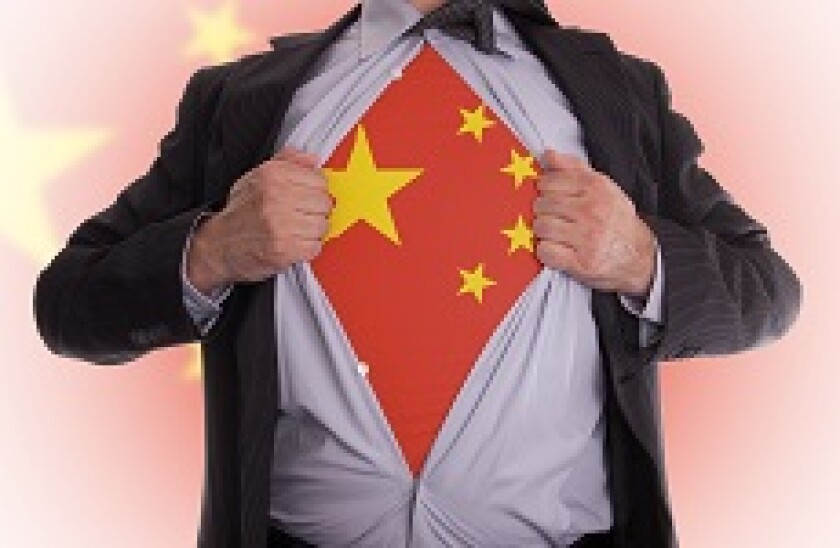The National Association of Financial Market Institutional Investors (Nafmii), the regulator of the Chinese interbank bond market, started accepting applications from foreign banks looking for a type-A licences last week. A type-A licence is a full-fledged bond licence that allows holders to underwrite all kinds of bonds in the interbank market, ranging from negotiable certificates of deposit to asset-backed notes.
Until now, the best licence that foreign banks could hope for was a type-B licence, which limits their lead underwriting scope to deals by offshore non-financial issuers, namely, Panda bonds.
Three international banks — BNP Paribas, HSBC and Standard Chartered — have obtained a type-B licence. Three others — Citi, Deutsche Bank and JP Morgan — hold the underwriter licence, which only allows them to be in the syndicate team on domestic deals.
By receiving a type-A licence, the underwriting landscape expands significantly for international banks. But getting the licence is easier said than done.
Banks have to satisfy three hard conditions and three soft ones to apply for a type-A permit. Once qualified, they will be graded on a 46-criteria test given by Nafmii. Banks’ basic qualifications and past performance make up 60% of the marking, with the remaining 40% attributed to how well the banks follow rules set by the Chinese regulators.
It is a consensus among bankers in China that none of the six international banks that have a chance at the type-A licence will have an impressive score on the test. But the reality is that, even if they have a licence to be on domestic deals, they are at a disadvantage compared with Chinese banks anyway unless the transaction is by an offshore issuer or sold in the international market.
This is because the majority of domestic issuers still rely exclusively on domestic banks for their transactions, according to two onshore bankers. Hiring an international bank is expensive, time-consuming and, as far as many issuers see it, unnecessary. Relying on capital-rich Chinese banks is more than enough to get deals done, while attracting international investors and starting to adopt international market practices are just the icing on the cake.
So why does Nafmii’s move to hand out type-A licences matter? Bankers reckon it’s an important gesture China needs to make ahead of the next round of trade war negotiations with the US pencilled in for next month.
That sentiment is clear in Nafmii’s guidelines for being eligible for the licence, and the conditions foreign banks need to satisfy.
Among the hard rules, the bank’s parent institution should be on the most recent global systemically important banks list published by the Financial Stability Board. The other two conditions are having an annual average of $20bn bonds underwritten by the parent in the past three years and at least a level two annual rating from the Chinese banking regulator. None of these factors will be a barrier for the six banks holding type-B or underwriting licences.
Instead, it is the three soft conditions that are likely to keep some banks out. In the past three years, banks cannot have incurred criminal punishments or “serious” administrative punishment, been placed under investigation or produced a “serious” result to the market due to violation of rules.
However, Citibank (China) was fined Rmb10.6m ($1.5m) in July 2017 by the Shanghai bureau of the China Banking and Insurance Regulatory Commission, well above the Rmb1m bar of what the regulator recognises as “serious” punishment. Citibank was fined for violating relevant interest rate rules when issuing loans to real estate borrowers and poor management of credit card issuance to low-risk retail clients. This means the bank will have to wait until July 2020 to apply for the type-A licence.
HSBC was also fined Rmb1m in May for misusing credit card funds in non-consumer sectors, but this falls within the “serious” limit.
Onshore bankers also pointed to HSBC’s involvement in allegedly disclosing information about Huawei to the US Department of Justice, a case they said led to the arrest of Meng Wanzhou, Huawei’s chief financial officer, generating much anger in mainland China.
All these pose some challenges. And even if these banks satisfy both the hard and soft requirements, the 46-criteria test set by Nafmii won’t help.
The most significant part of the evaluation — past underwriting and trading experience in the interbank market — will make life difficult. Only if a bank underwrote more than Rmb8bn and 150 deals can they score full points. That is a big ask since foreign banks have mostly focused on the Panda bond market, which churned out just 49 deals worth a total of Rmb9.65bn all of last year.
Standard Chartered appears to have the best chances. It is the only bank among the six to have all four licences Nafmii included in the test — policy bank bonds underwriting, credit risk mitigation tools underwriting, market maker and primary dealer.
The regulator is unlikely to keep the others out just because they score low on the test, bankers reckon, particularly as the move can serve as a bargaining chip in the US-China trade negotiations.
But it is more questionable whether a type-A licence will make much of a difference to any of these banks’ DCM businesses. Global banks may find that winning the support of China’s regulators is easier than convincing the country’s issuer base to enter a new age.

